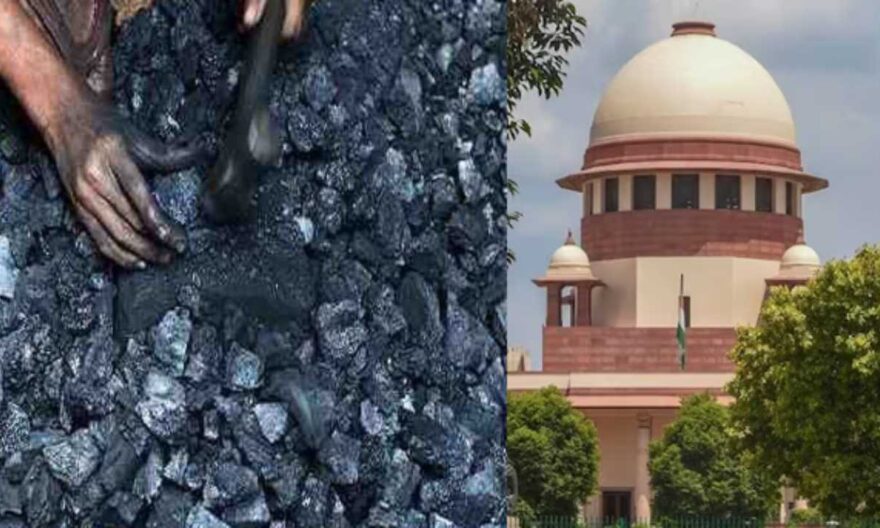
The Supreme Court has affirmed the ruling of the Delhi High Court, which invalidated the increased import quota for raw pet-coke (RPC) based on a “Consent to Operate” (CTO) issued to an importer for enhanced production capacity.
The Court noted that the Andhra Pradesh Pollution Control Board (APPCB) issued the CTO for the additional quantity after the Supreme Court’s previous order on October 9, 2018, which set the import limit based on the existing production capacity of entities at that time.
The bench, comprising Justices S. Ravindra Bhat and Dipankar Datta, stated that since the appellant’s increased capacity was established after the October 9, 2018 order, it could not be considered by the court. Consequently, the Court upheld the High Court’s decision, which concluded that the appellant was not entitled to a proportionate increase in its share of the total permitted imports determined by the Supreme Court, based on subsequent capacity growth.
The Director General of Foreign Trade (DGFT) allocated the import quota for RPC among different entities, guided by a report from the Environment Pollution Control Authority (EPCA) and the Supreme Court’s October 9, 2018 order, which capped RPC imports at 1.4 million metric tonnes per annum (MTPA) based on the production capacity reported by each calciner.
Subsequently, the appellant, M/s Sanvira Industries, requested an enhanced import quota allocation, citing an increase in its production capacity from 200,000 to 330,000 MTPA. The APPCB issued a letter confirming Sanvira’s capacity for manufacturing calcined petroleum coke at 330,000 MTPA. Relying on this information, the DGFT increased Sanvira’s import quota. In contrast, a similar request from the respondent, Rain CII Carbon (Vizag) Ltd, was rejected by the DGFT.
Rain CII challenged the increased allocation to Sanvira, leading to a writ petition before the Delhi High Court, which dismissed the claim. The High Court’s Division Bench set aside the decision to enhance Sanvira’s import quota, concluding that increased production capacity did not automatically entitle them to a larger share of the total imports authorized by the Supreme Court’s October 9, 2018 order.
In the appeal filed before the Supreme Court, it noted that the EPCA’s report had set the total capacity at 1.17 million tonnes, considering the figures provided by the industry in their CTOs. The Court found that Sanvira’s CTO, issued by the APPCB, recorded a capacity of 200,000 MTPA, and the subsequent capacity increase of 330,000 MTPA was acknowledged only after October 9, 2018.
The Court further remarked that the DGFT treated a letter issued by the APPCB on May 4, 2020, as if Sanvira’s original capacity was 330,000 MTPA, disregarding the fact that Sanvira’s request for enhanced import quota had been rejected multiple times before.
Upholding the Division Bench’s decision, the Court concluded that the annual import limit of 1.4 million metric tonnes was based on the total production capacity as of October 9, 2018, established by the Supreme Court using data provided by all calciners. Sanvira’s original capacity was 200,000 MTPA, as disclosed in their CTO, and the subsequent capacity increase was considered irrelevant.
Therefore, the Court upheld the Division Bench’s findings and dismissed the appeal.
Case Title: M/s Sanvira Industries vs Rain CII Carbon (Vizag) Ltd. & Ors.




